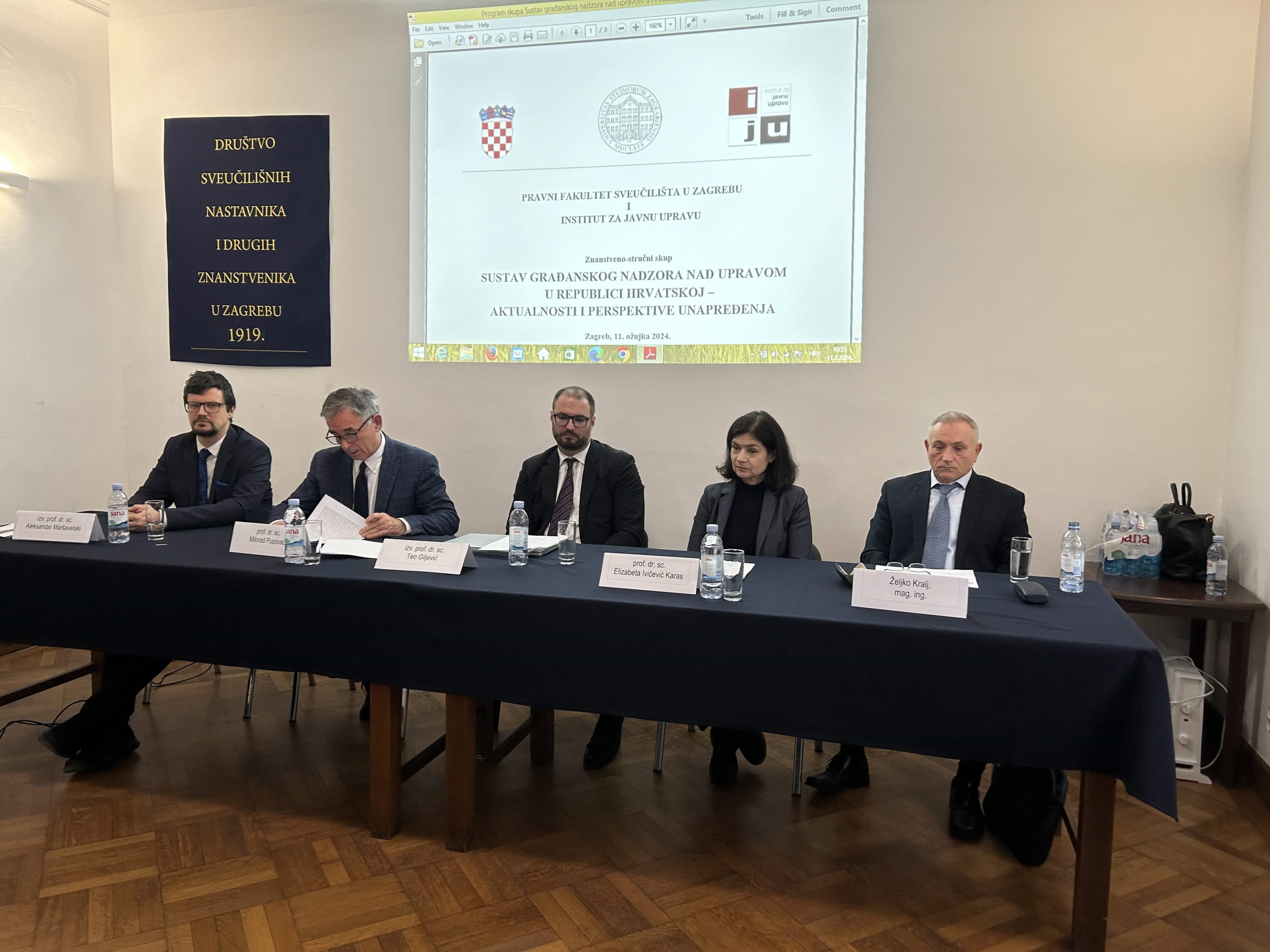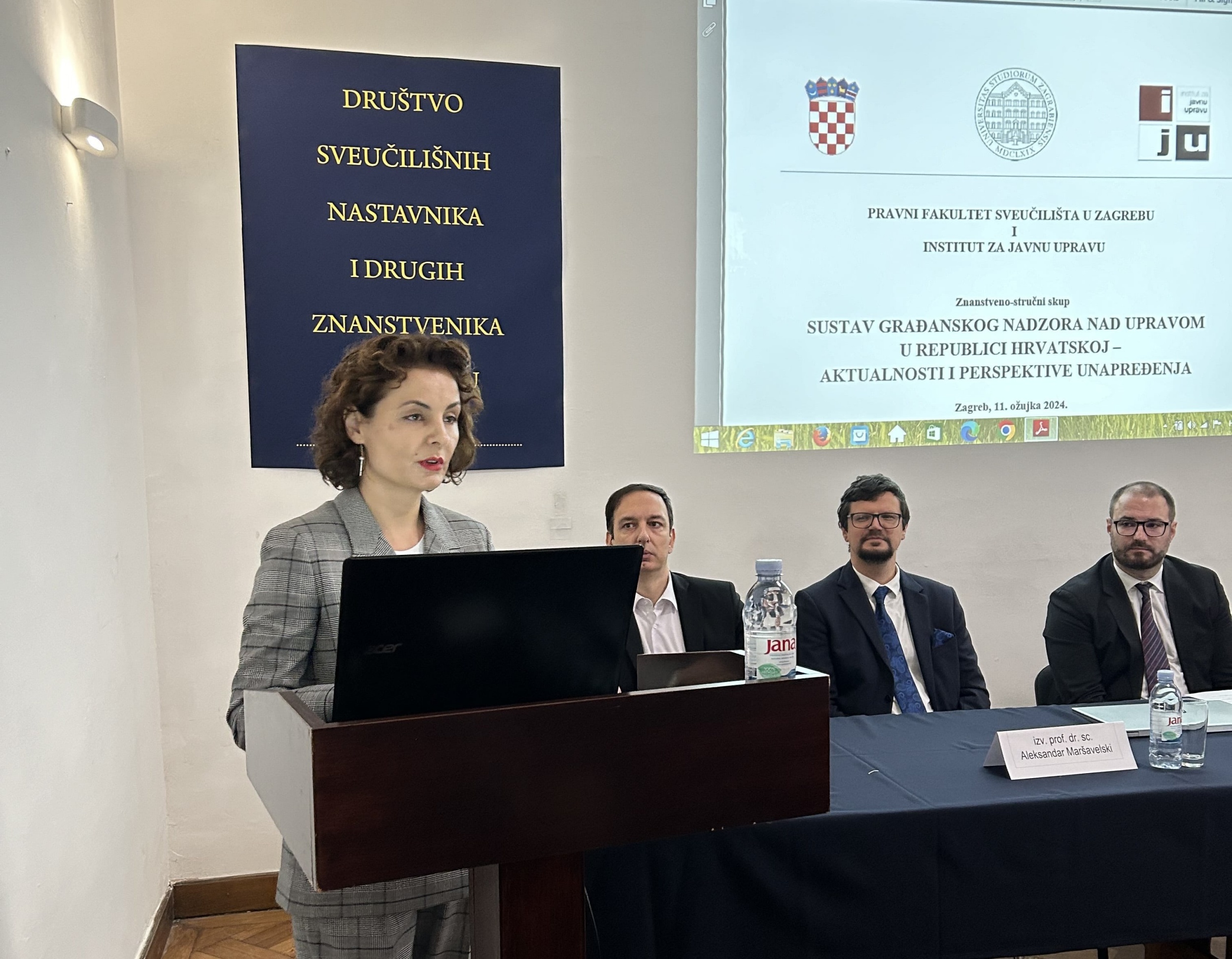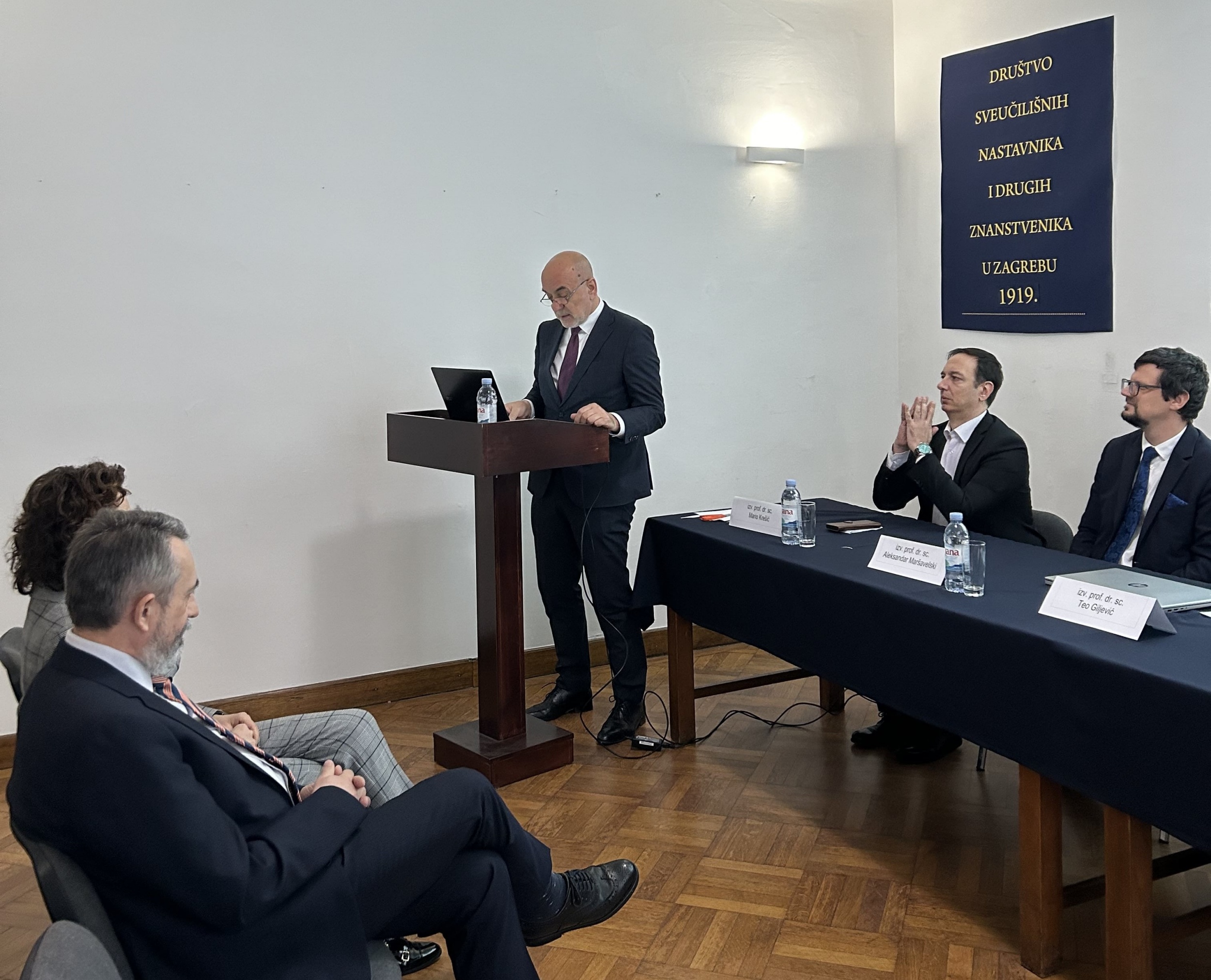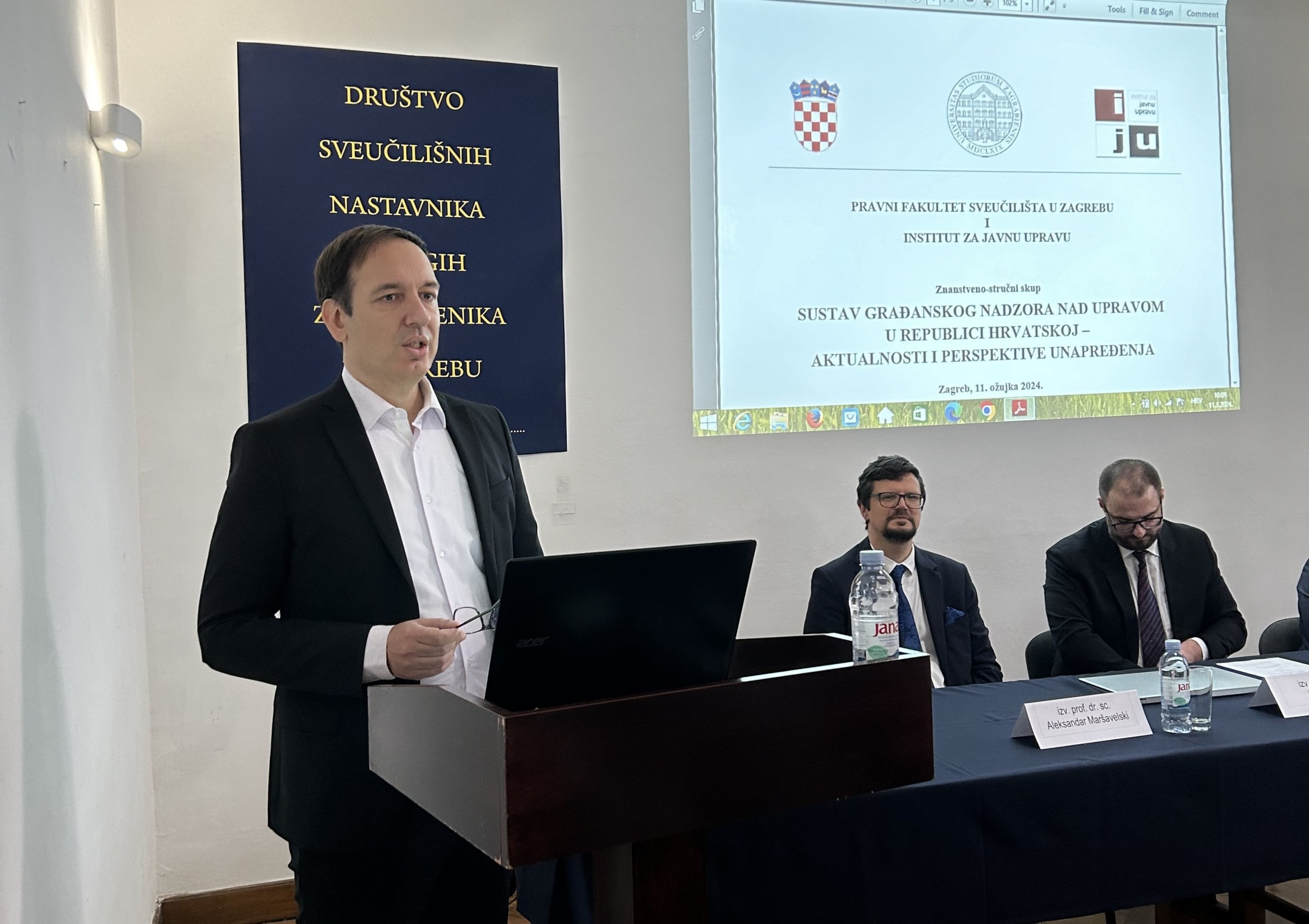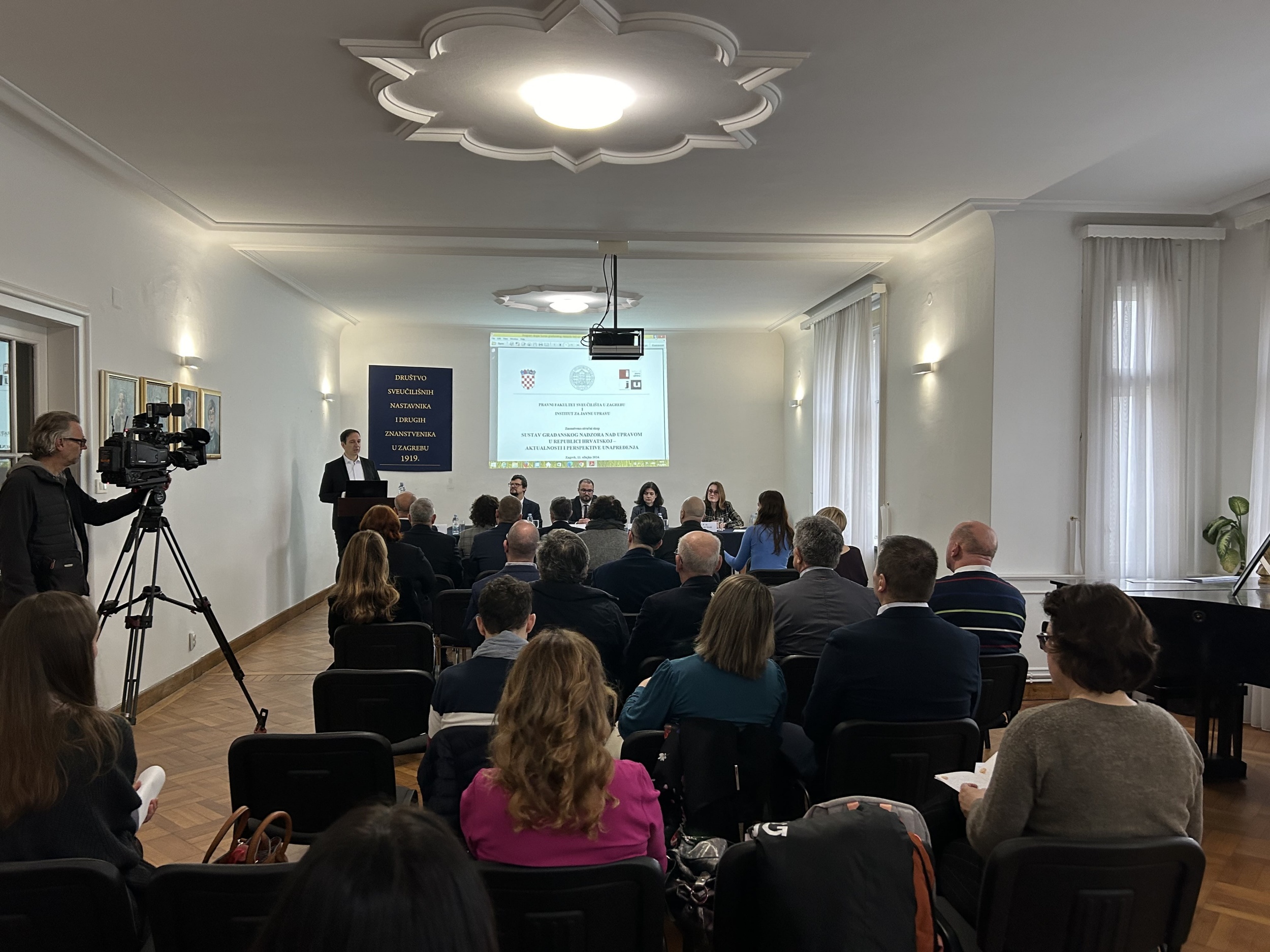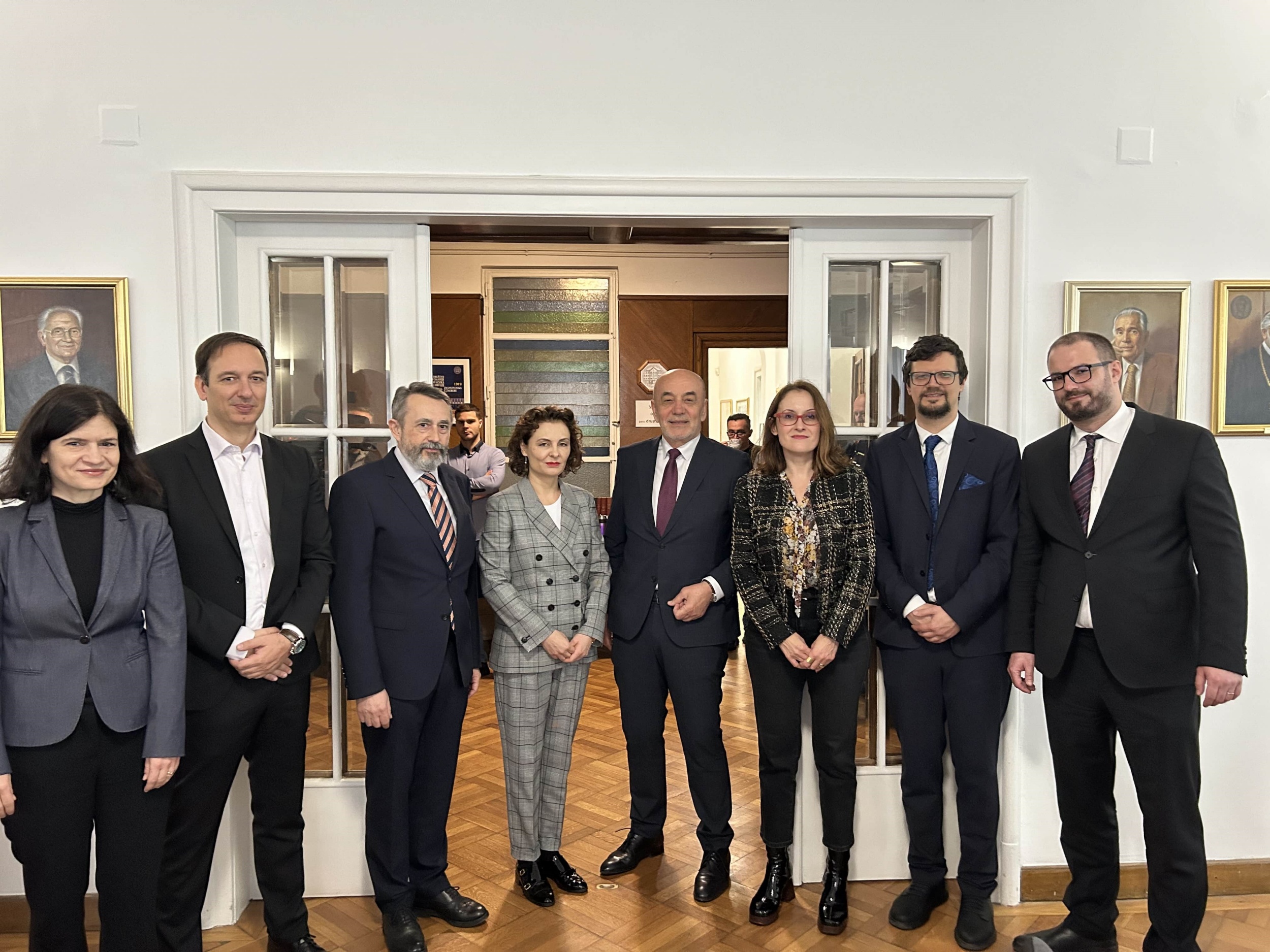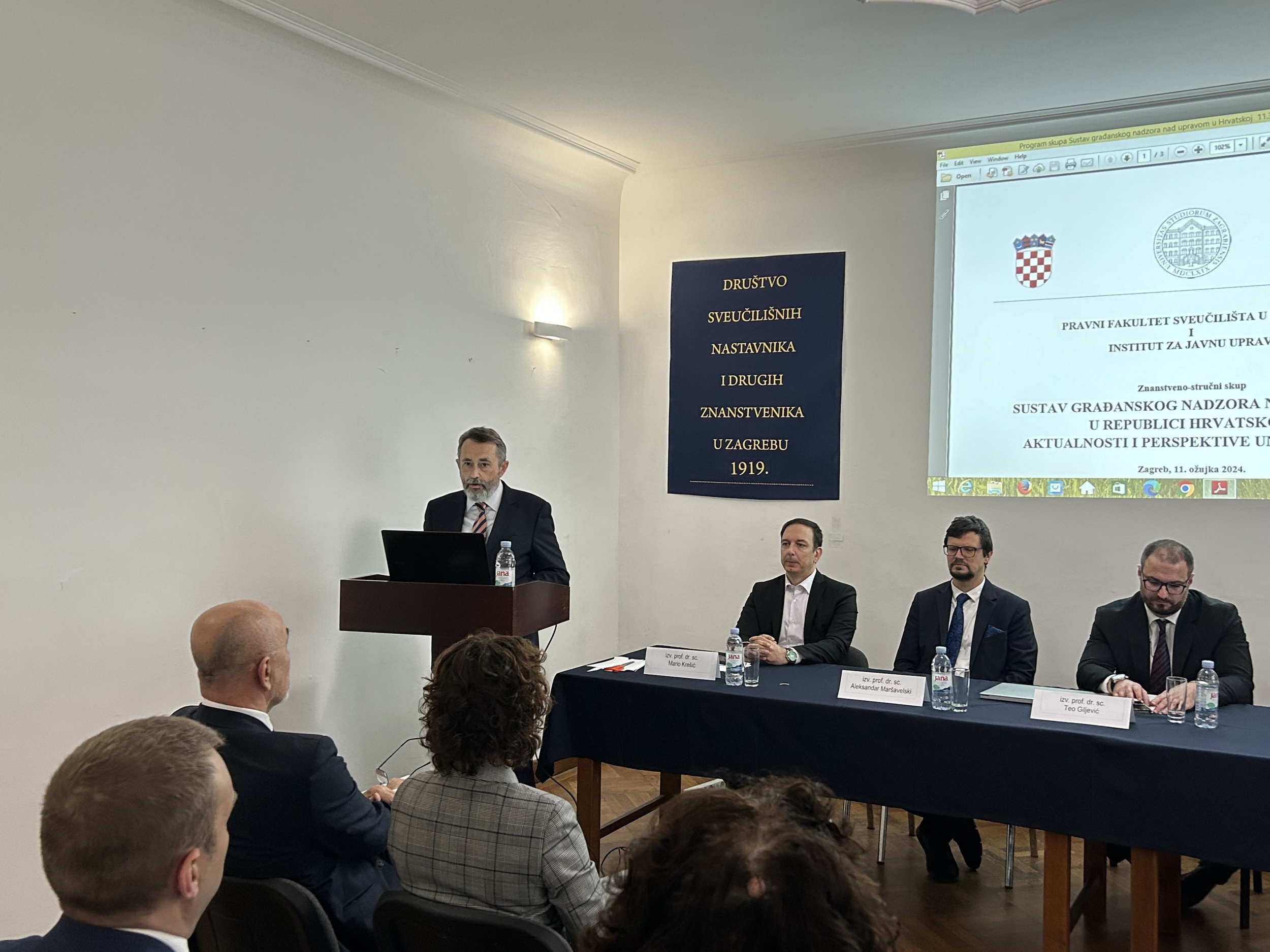Zagreb, 11 March 2024 – Civilian supervision of the work of the police and security-intelligence services in the Republic of Croatia and civil supervision of the social welfare system in the Republic of Croatia are the main topics of the scientific-expert meeting entitled “The system of civil supervision over the administration in the Republic of Croatia – state of affairs and improvement prospects”, which was organized by the Faculty of Law of the University of Zagreb and the Institute of Public Administration, held in the premises of the Association of University Teachers and other Scientists in Zagreb.
In the opening speech, Prof. Ivan Koprić, dean of the Faculty of Law, pointed out that the co-organizers of this meeting made an effort to come up in an open conversation with better and more effective solutions for civil, public and administrative supervision of the work of public administration.
“Relations between state authorities and public administration bodies with citizens in modern European societies are in a crisis of sorts, despite numerous technical and technological innovations that enable closer and faster contact, better communication, wider participation of citizens in public matters, and finally, the strengthening of citizens’ trust in public authorities. The results of scientific and professional analyses, insights of supervised institutions and actors of civil supervision, and conclusions from the discussion will serve to devise improvements to relevant legislation and institutional forms of supervision over public administration in Croatia,” said Dean Koprić.
The audience was also addressed by the delegates of the Vice-President of the Government of the Republic of Croatia of and the Minister of the Interior, State Secretary of the Ministry of the Interior Irena Petrijevčanin, and State Secretary of the Ministry of Justice and Administration Juro Martinović.
“Croatia, like many democratic countries, has in place a regulated system of civil supervision over the work of public and state authorities. This includes the police, security and intelligence services, but also other systems, such as the social welfare system. This is regulated by laws, and we believe that today’s scientific-expert meeting can make a contribution in the sense of analyzing the current situation, possibly looking for areas for improvement. We, as stakeholders in the system, believe that it is good to hear different opinions and then identify possible points for improvement. Despite significant progress, more can always be done”, pointed out State Secretary Petrijevčanin.
State Secretary Martinović said that the Ministry of Justice and Administration is deeply convinced that the law can be by universal civil supervision over the work of public administration, because modern public administration must be based on openness and availability of information, and added: “As a representative of the Ministry of Justice and Administration, which includes a very specific system, the prison system, I would like to point out that we are aware of the duty of developing control and supervision mechanisms.”
The goal of the meeting was to bring together relevant stakeholders in order to establish a constructive dialogue and discussion about the current system of civil supervision over different parts of the administration in Croatia and the possibilities of its improvement. In three panel discussions, experiences were shared by Milorad Pupovac, Željko Kralj, Assoc. Prof. Teo Giljević, Stjepan Novak, Zdravka Čufar Šarić, Ljubica Matijević Vrsaljko and Assoc. Prof. Jasmina Džinić, while the opening of the meeting and the panels were moderated by Assoc. Prof. Mario Krešić, Prof. Elizabeta Ivičević Karas, Assoc. Prof. Aleksandar Maršavelski and Prof. Goranka Lalić Novak.
